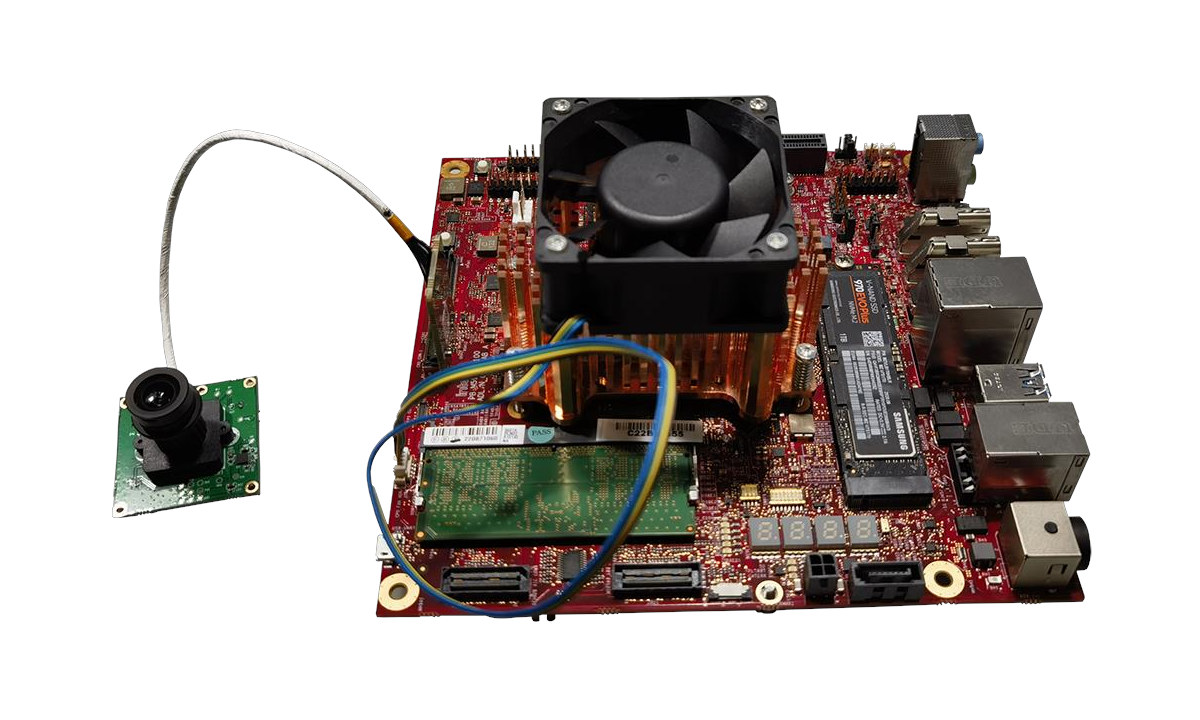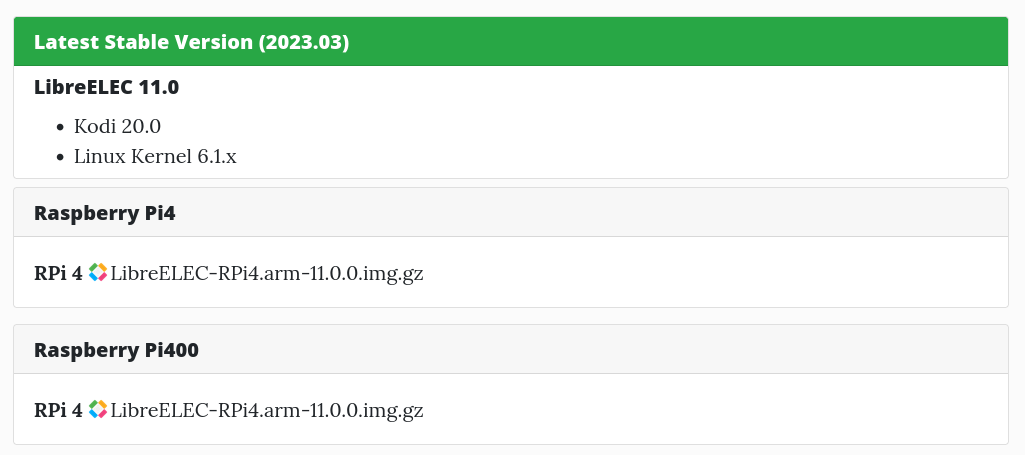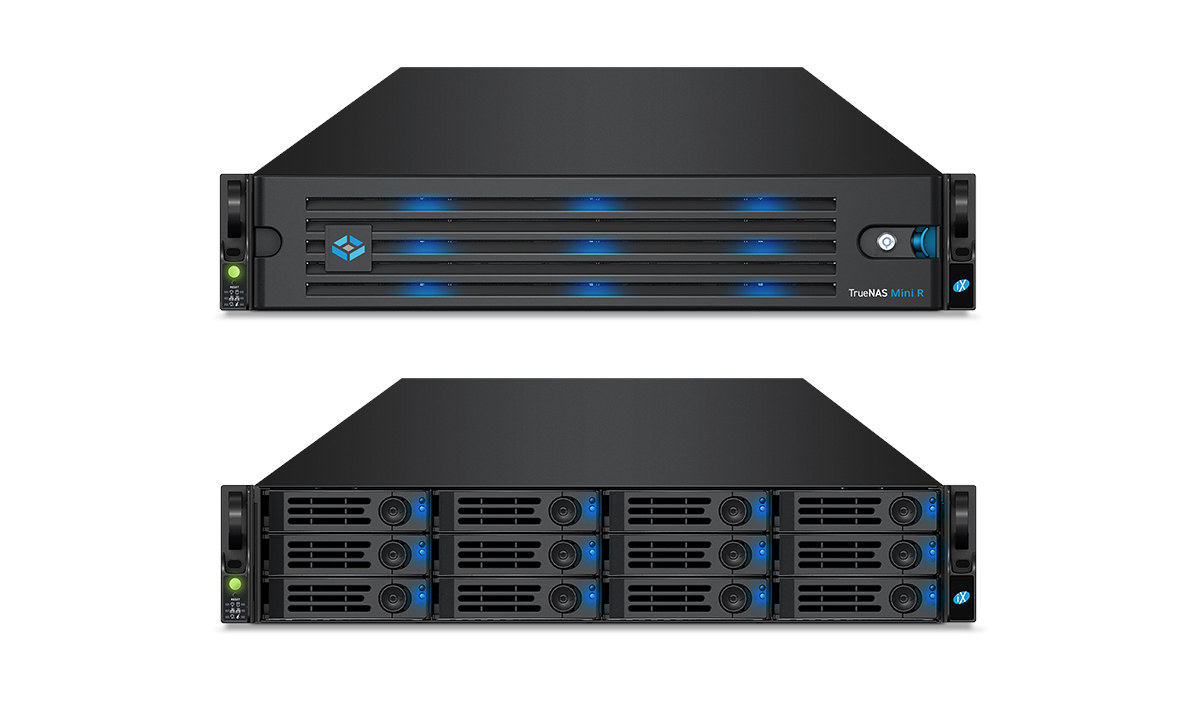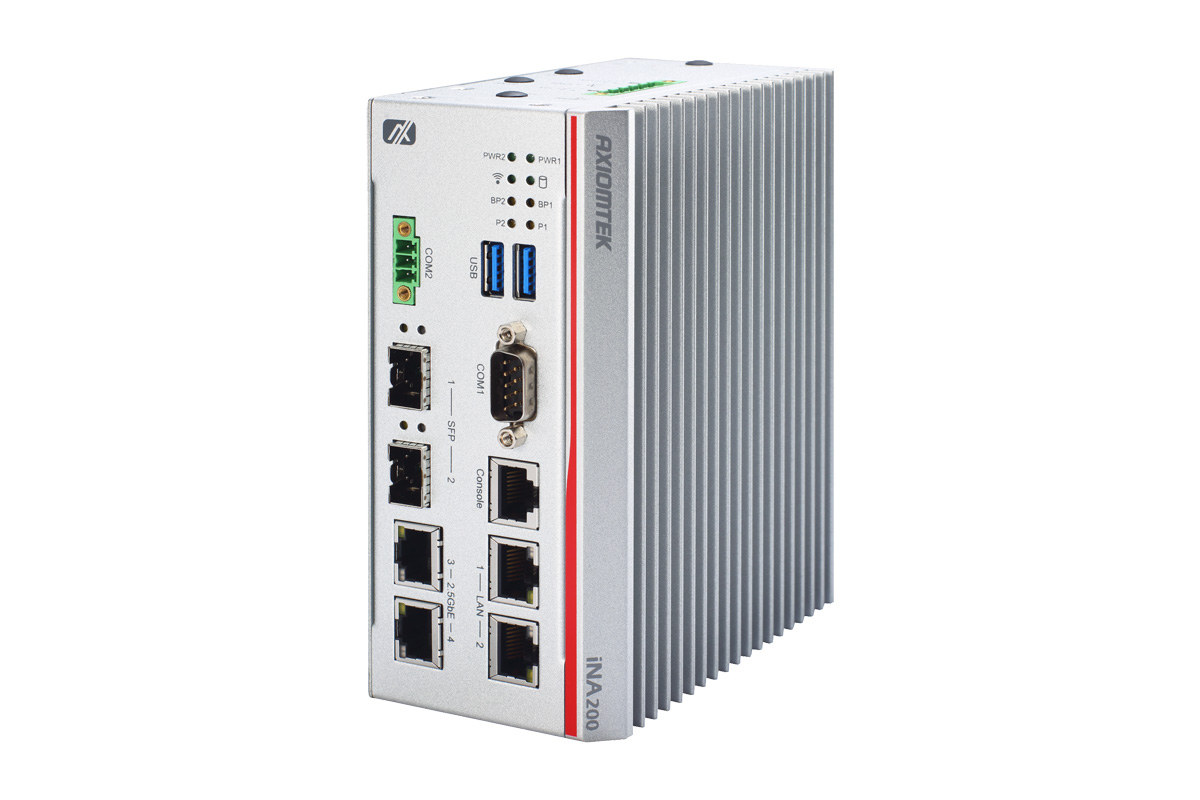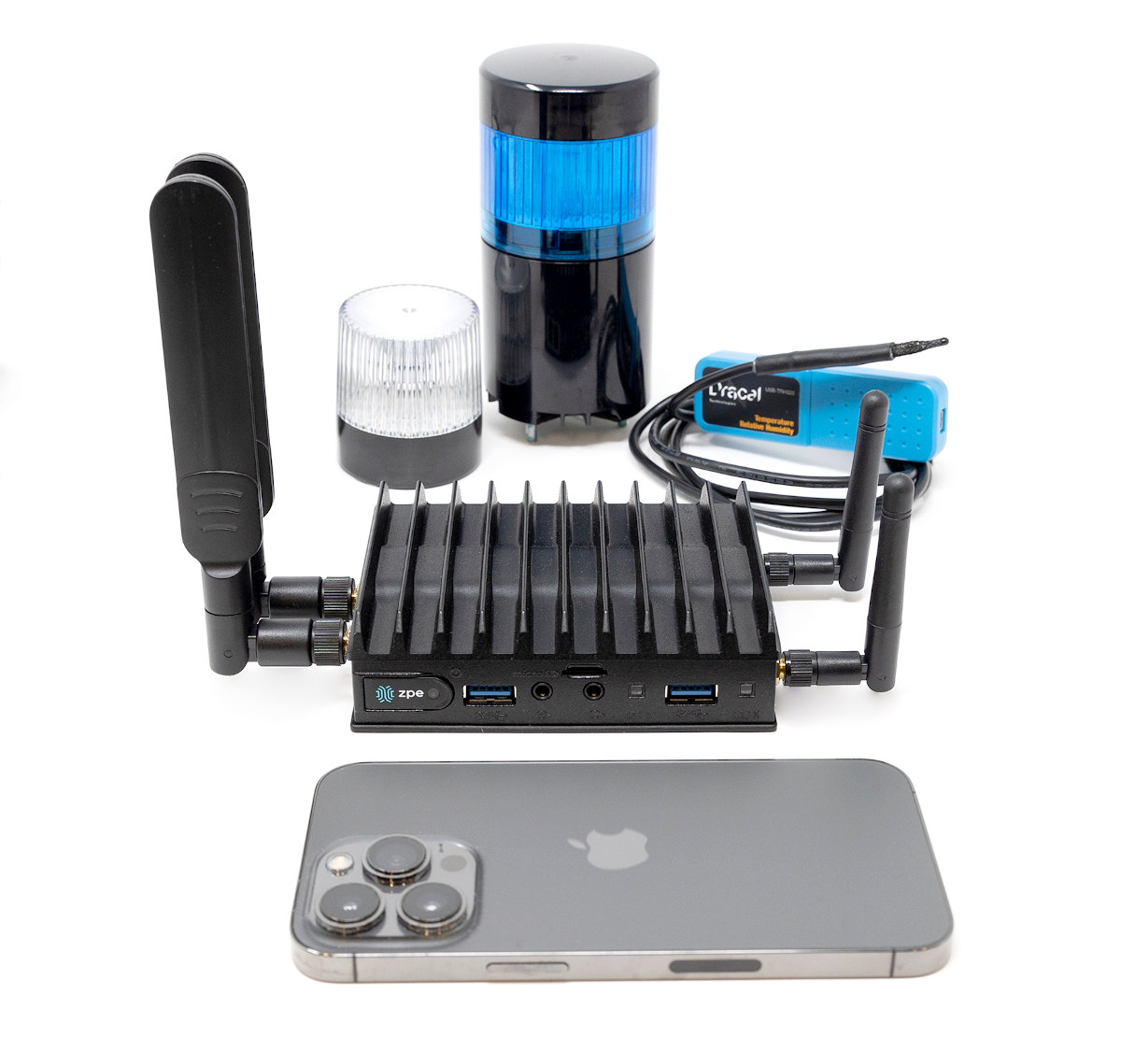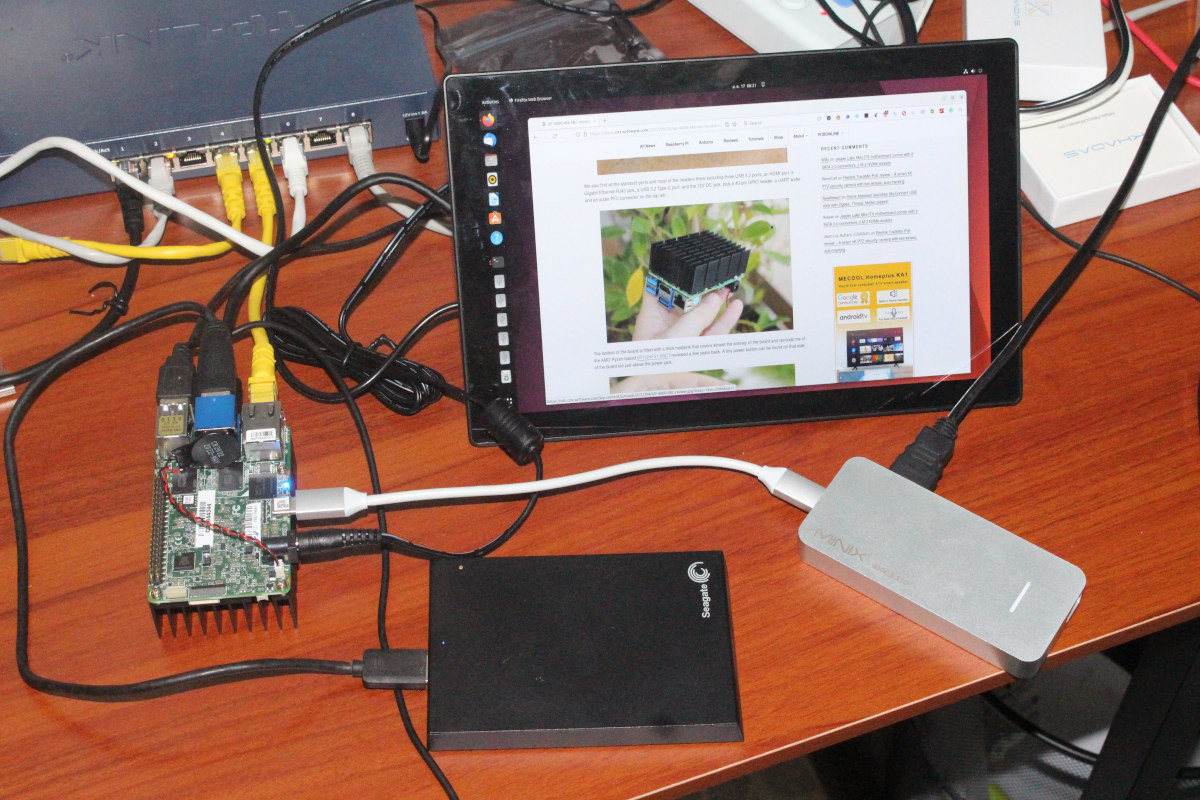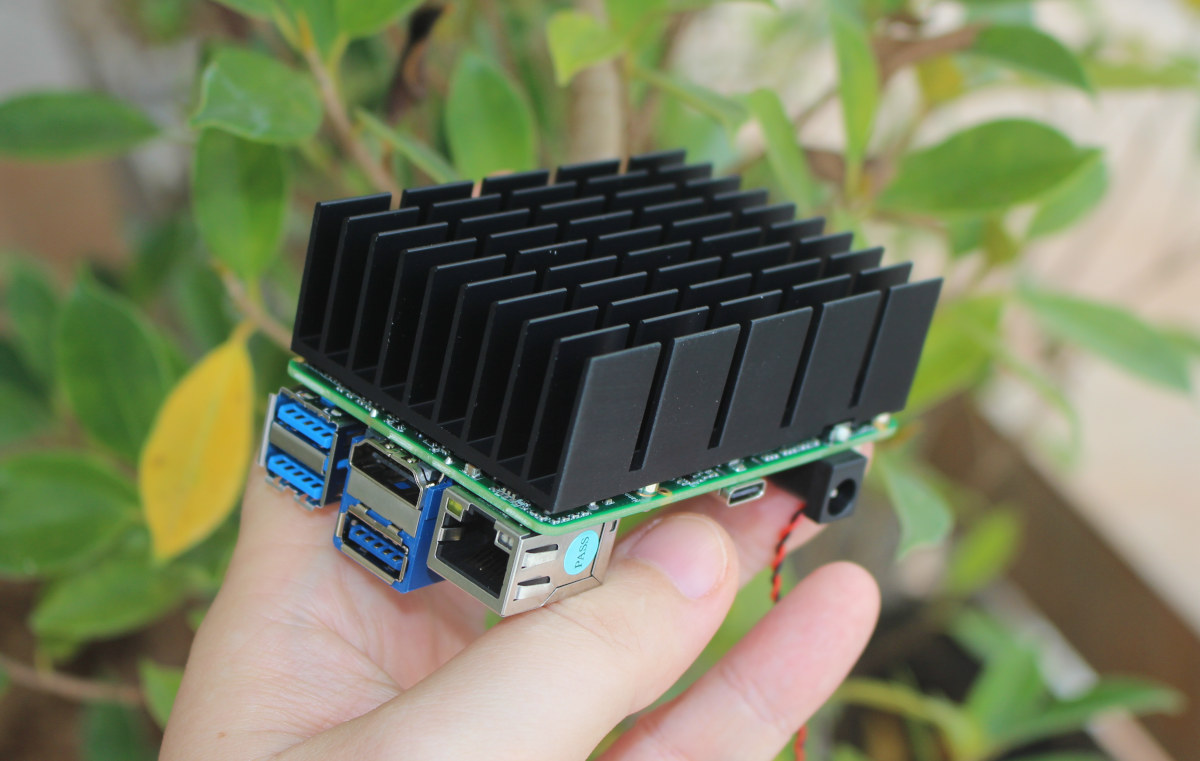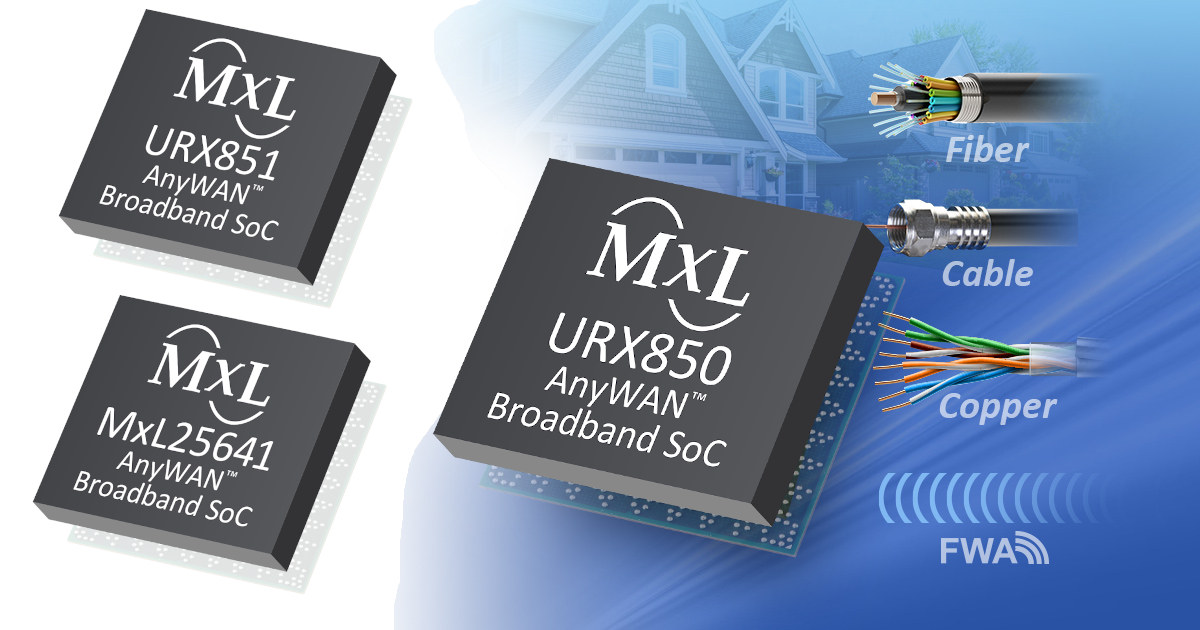Most Intel processors do not come with a MIPI CSI camera, but some Alder Lake-N processors do, and Leopard Imaging has designed the LI-ADL-ADP-IMX415-MIPI-081H MIPI CSI camera module that is compatible with the Intel ADL-N CRB (Alder Lake-N Customer Reference Board) and custom Alder Lake-N boards equipped with a compatible MIPI CSI connector. The 13MP camera supports resolutions up to 3864 x 2176 and works with boards and embedded systems based on Intel Atom processors x7000E Series, Intel Core i3-N processors, and Intel Processors N-Series processors. LI-ADL-ADP-IMX415-MIPI-081H specifications: Sony IMX415 CMOS image sensor Diagonal – 6.43 mm (Type 1/2.8) Active Pixels – 3864 (H) x 2176 (V) Pixel Size: 1.45 x 1.45 μm Optical Format: 1/2.8″ Effective Focal Length – 4.063 mm Aperture, F/#2.29 ± 5% IR Filter – 650 nm IR cut filter Field of View (FOV) – 81.7˚ horizontal, 44.7˚ vertical; 95.1˚ diagonal Lens Mount – M12 x […]
LibreELEC 11 released with Kodi 20, brings back Amlogic platforms
LibreELEC 11 lightweight media center Linux distribution based on Kodi 20 “Nexus” has just been released with various improvements on x86 and Arm platforms. Kodi 20 was released and available for download in January with AV1 hardware video decoding in Android and x86 (VAAPI) platforms with AV1-capable GPU or VPU, FFMPEG 4.4, Pipewire support in Linux, and a few others. LibreELEC 11 enables you to have a dedicated, and fast booting, HTPC based on a mini PC, a Raspberry Pi SBC, or an Arm-based TV box with all features from the latest Kodi release. LibreELEC 11 supports Raspberry Pi 2 to 4 SBCs, 64-bit x86 hardware, various Allwinner, Rockchip, and Amlogic SBCs and TV boxes with x86, Raspberry Pi, and Rockchip hardware considered more stable and feature complete. LibreELEC 10.0 did away with Amlogic TV boxes and single board computers because of driver issues, but LibreELEC 11.0 brings Amlogic back […]
TrueNAS Mini R rack-mountable system supports TrueNAS CORE or Debian-based TrueNAS SCALE
iXsystems’ TrueNAS Mini R rack-mountable system powered by an Intel Atom C3758 processor running TrueNAS CORE or the new TrueNAS SCALE and equipped with up to 64GB RAM and twelve lockable and hot-swappable 3.5-inch drive bays for more than 200TB of capacity when populated with 18TB drives and 2.5-inch SSD adapters can be provided as well. The TrueNAS Mini R also offers two 10GbE RJ45 interfaces and an optional dual 10GbE SFP+ card can also be added to the system., an IPMI out-of-band management interface, and the company says it’s mostly suitable for small and home offices, as well as enterprise deployments for remote sites, backup, labs, and non-critical departmental applications. TrueNAS Mini specifications: SoC – Intel Atom C3758 octa-core Denverton processor clocked at up to @ 2.2 GHz with 16MB cache; 25W TDP System Memory – 32 or 64GB ECC RAM Storage 12 x 3.5-inch hot-swappable bays (can […]
Axiomtek iNA200 DIN-Rail cybersecurity gateway offers 6x Ethernet ports up to 2.5GbE
Axiomtek iNA200 is a DIN-rail mountable cybersecurity gateway powered by a choice of Elkhart Lake Atom x6000E-series processor and designed for operational technology (OT) network security. The fanless gateway comes with up to 32GB RAM, supports SATA storage, offers 2.5GbE & Gigabit Ethernet (RJ45/SFP) networking, and as it is designed for industrial settings, can take input from two 9V to 36V power sources and operate in the -40°C to 70°C temperature range. Axiomtek iNA200 specifications: SoC – Intel Atom x6212RE/x6414RE dua-core or quad-core Elkhart Lake processor with 16 EU Intel UHD Graphics; TDP: x6212RE: 6W, x6414RE: 9W System Memory – Up to 32GB DDR4-3200 SO-DIMM Storage – Support for 2.5-inch SATA III SSD, optional eMMC flash Video Output – HDMI Networking 2x Gigabit Ethernet RJ45 ports via Marvell 88E1512 controller with LAN Bypass 2x 2.5GbE RJ45 ports via Intel I225-IT controller with LAN Bypass and TSN function 2x Gigabit Ethernet […]
ZPE Nodegrid mini SR Intel Linux cloud gateway targets IoT and OT applications
ZPE Systems Nodegrid Mini SR is a compact cloud-orchestrated gateway designed for the secure management of Internet of Things (IoT) and Operational Technology (OT) infrastructures. Power by a dual-core Intel processor, the Linux-based device is equipped with 4GB RAM, a 16GB encrypted storage device, and whose hardware looks to be very similar to the Compulab Fitlet2 mini PC with two Gigabit Ethernet ports, four USB 3.0/2.0 ports, and optional support for WiFi 6 and 4G LTE. ZPE Nodegrid mini SR specifications: SoC – Unnamed Intel x86 64-bit dual-core processor, most likely Intel Atom x5-E3930 dual-core Apollo Lake processor (upgrades can be provided) System Memory – 4GB DDR3 Storage – 16 GB Self Encrypted Disk (SED), MicroSD card slot Video Output – HDMI Connectivity 2x Gigabit Ethernet RJ45 ports with PoE Optional 802.11ax WiFi 6 and Bluetooth with two external antennas Optional 4G LTE cellular connectivity with a single SIM card […]
UP 4000 x86 SBC review with Ubuntu 22.04
The UP 4000 is a credit-card / Raspberry Pi-sized single board computer based on an Intel Apollo Lake processor. AAEON sent me the model with an Intel Atom x7-E3950 quad-core processor, 4GB RAM, and a 64GB eMMC flash, and in the first part of the review, I installed Ubuntu 22.04 since the board would initially only boot to the UEFI shell out of the box. I’ve now spent more time with the board, and in this article, I will report my experience with the UP 4000 SBC running Ubuntu 22.04 checking out features, performance, video playback, power consumption, and so on. Ubuntu 22.04 System info Let’s check out some information after I’ve upgraded the system to the latest packages:
|
1 2 3 4 5 6 7 8 9 10 11 12 13 14 15 16 17 18 19 20 21 22 23 24 25 26 27 28 29 30 31 32 33 34 35 36 37 38 39 40 41 42 43 44 45 46 47 48 49 50 51 52 53 54 |
jaufranc@UP-4000-CNX:~$ lsb_release -a No LSB modules are available. Distributor ID: Ubuntu Description: Ubuntu 22.04.1 LTS Release: 22.04 Codename: jammy jaufranc@UP-4000-CNX:~$ uname -a Linux UP-4000-CNX 5.15.0-48-generic #54-Ubuntu SMP Fri Aug 26 13:26:29 UTC 2022 x86_64 x86_64 x86_64 GNU/Linux jaufranc@UP-4000-CNX:~$ inxi -Fc0 System: Host: UP-4000-CNX Kernel: 5.15.0-48-generic x86_64 bits: 64 Console: pty pts/1 Distro: Ubuntu 22.04.1 LTS (Jammy Jellyfish) Machine: Type: Desktop Mobo: AAEON model: UP-APL03 v: V1.0 serial: <superuser required> UEFI: American Megatrends v: UPAPBM11 date: 07/01/2022 CPU: Info: quad core model: Intel Atom E3950 bits: 64 type: MCP cache: L2: 2 MiB Speed (MHz): avg: 1099 min/max: 800/2000 cores: 1: 1109 2: 1009 3: 1114 4: 1165 Graphics: Device-1: Intel Celeron N3350/Pentium N4200/Atom E3900 Series Integrated Graphics driver: i915 v: kernel Display: server: X.org v: 1.21.1.3 with: Xwayland v: 22.1.1 driver: X: loaded: modesetting unloaded: fbdev,vesa gpu: i915 tty: 80x24 resolution: 1280x800 Message: GL data unavailable in console. Try -G --display Audio: Device-1: Intel Celeron N3350/Pentium N4200/Atom E3900 Series Audio Cluster driver: snd_hda_intel Sound Server-1: ALSA v: k5.15.0-48-generic running: yes Sound Server-2: PulseAudio v: 15.99.1 running: yes Sound Server-3: PipeWire v: 0.3.48 running: yes Network: Device-1: Realtek RTL8111/8168/8411 PCI Express Gigabit Ethernet driver: r8169 IF: enp2s0 state: up speed: 1000 Mbps duplex: full mac: 00:07:32:a2:cd:17 Drives: Local Storage: total: 58.24 GiB used: 12.69 GiB (21.8%) ID-1: /dev/mmcblk0 vendor: SanDisk model: DA4064 size: 58.24 GiB Partition: ID-1: / size: 56.53 GiB used: 12.68 GiB (22.4%) fs: ext4 dev: /dev/mmcblk0p2 ID-2: /boot/efi size: 511 MiB used: 5.2 MiB (1.0%) fs: vfat dev: /dev/mmcblk0p1 Swap: ID-1: swap-1 type: file size: 3.96 GiB used: 0 KiB (0.0%) file: /swapfile Sensors: System Temperatures: cpu: 6280.4 C mobo: N/A Fan Speeds (RPM): cpu: 6553500 Info: Processes: 215 Uptime: 2h 20m Memory: 3.68 GiB used: 1.09 GiB (29.5%) Init: systemd runlevel: 5 Shell: Bash inxi: 3.3.13 |
Everything looks good with an Intel Atom E3950 processor detected together with 3.68GB RAM and a 56.53GB rootfs EXT-4 partition. UP 4000 features testing There may also be some issues […]
UP 4000 x86 SBC review – Part 1: Unboxing and first boot
AAEON UP 4000 is a compact Apollo Lake single board computer that’s about the size of a business card or a Raspberry Pi designed for automation, robotics, digital signage, and other space-constrained applications that may benefit from an x86 processor. The company already published some Phoronix benchmarks comparing the UP 4000 SBC against Raspberry Pi 4, NVIDIA Jetson Nano, and the original UP board, but since nothing beats third-party evaluation, AAEON sent a review sample to CNX Software for additional testing. UP 4000 SBC unboxing There are several variants of the board, and I received the UP-APL03X7F-A10-0464 SKU with 4GB RAM, 64GB eMMC flash, and an Intel Atom x7-E3950 quad-core processor. The package includes the board together with a multilingual safety manual that explains you should not immerse the board underwater and should avoid walking on it :). A 12V/5A power supply was also included separately. The power cord was […]
MaxLinear AnyWAN URX850, URX851, and MxL25641 Intel Atom SoCs target broadband routers and gateways
MaxLinear has just announced the availability of the first three AnyWAN broadband SoCs featuring Intel Atom cores with the MxL25641, URX850, and URX851 processors designed for 5Gbps and 10 Gbps broadband routers and gateways, usually referred to as CPEs (customer premise equipment). When I first read the news of MaxLinear releasing Intel Atom SoCs, I could not quite compute how it was possible, as I can’t remember any third-party releasing Intel processors and I thought it might be a system-in-package instead. But MaxLinear keeps calling those Intel Atom SoCs, and the reason is that the company acquired Intel’s Home Gateway Platform Division in 2020. MaxLinear AnyWAN x86 SoCs key features and specifications: AnyWAN URX850/URX851 (for 10Gbps systems) CPU – 4x Intel Atom CPU cores @ 2 GHz Memory – Up to 16GB LPDDR4 or DDR4 Storage – eMMC 5.1 flash Networking 4x 2.5GE PHYs XFI WAN Packet processor for full […]


